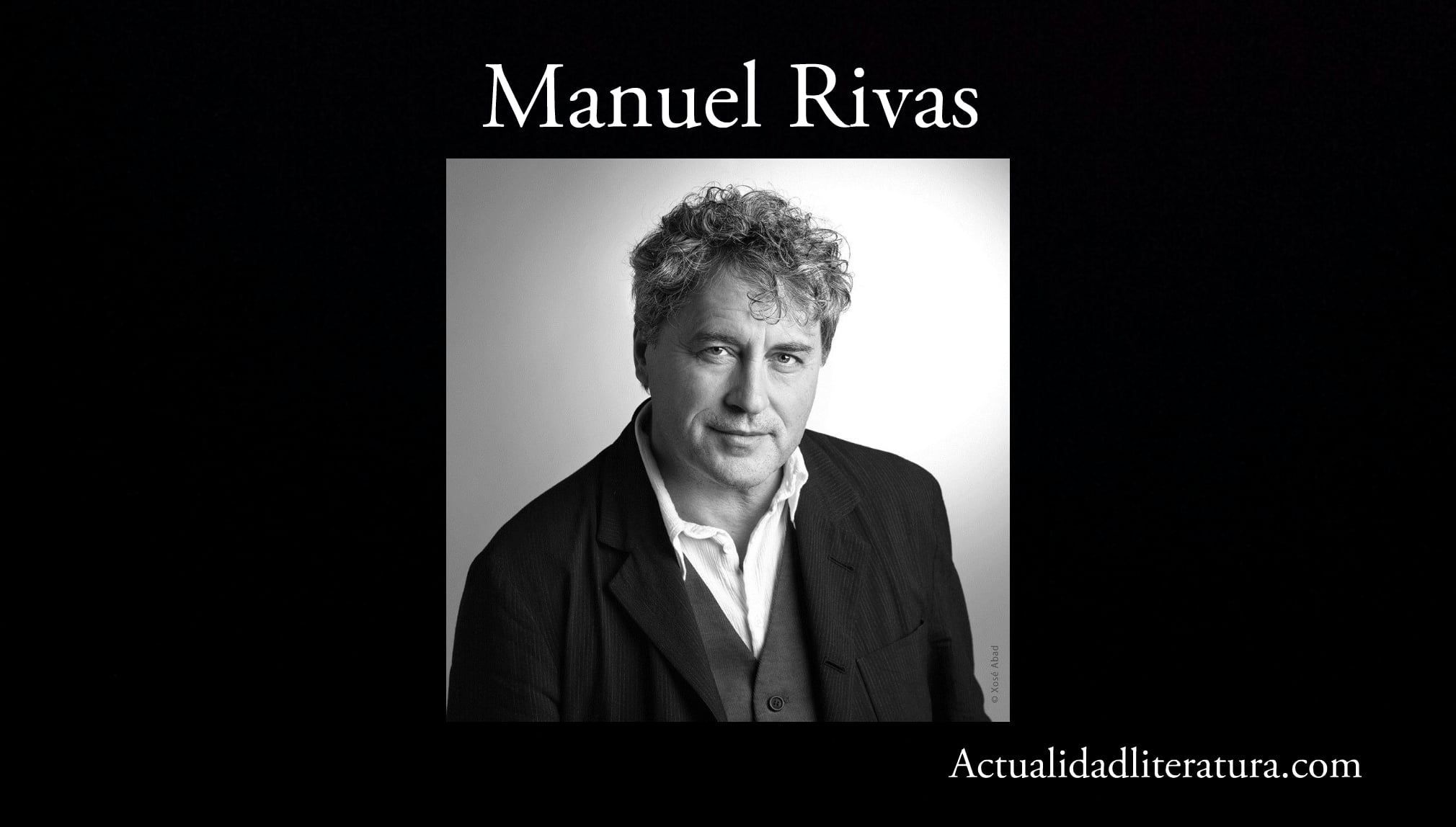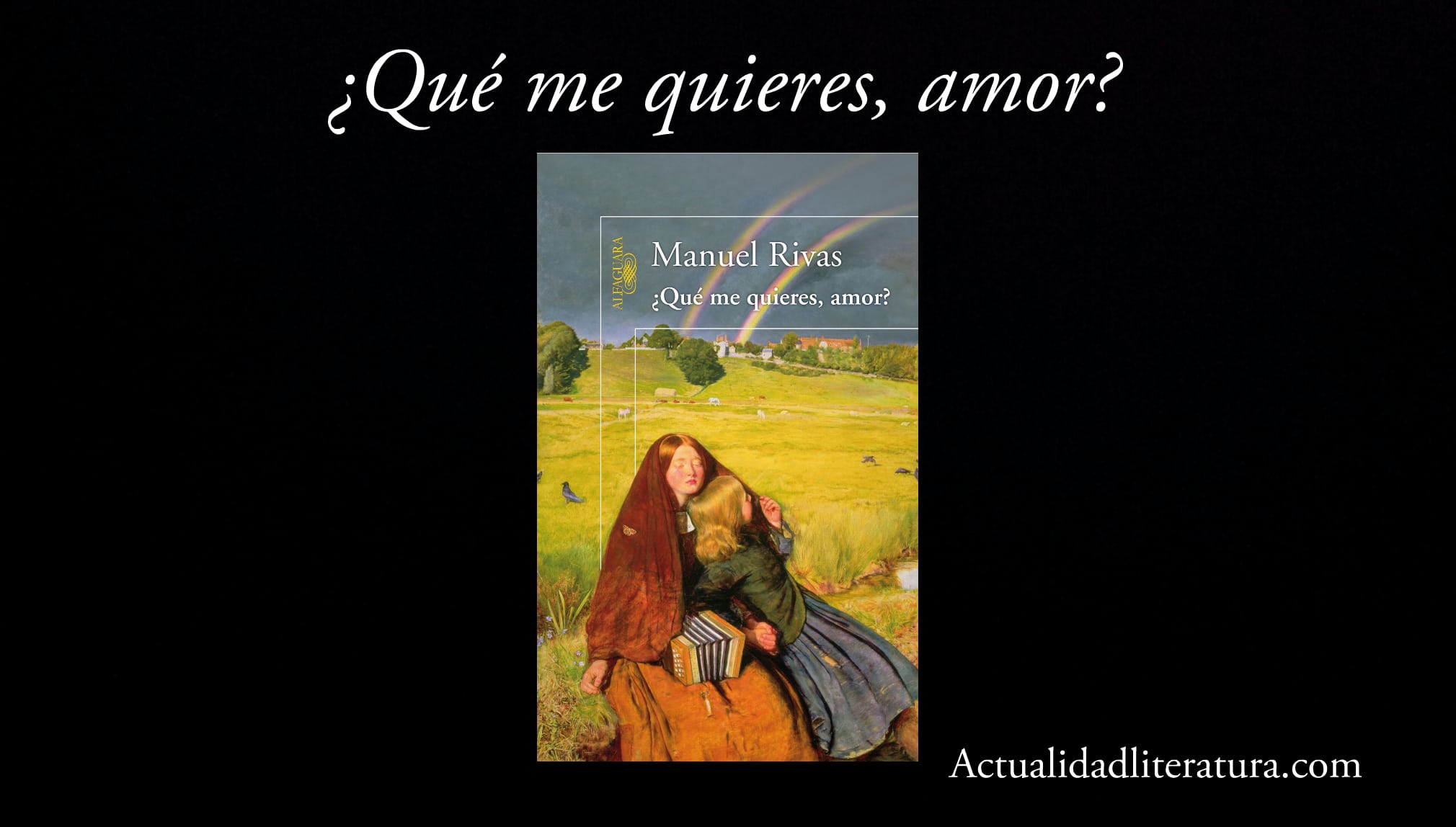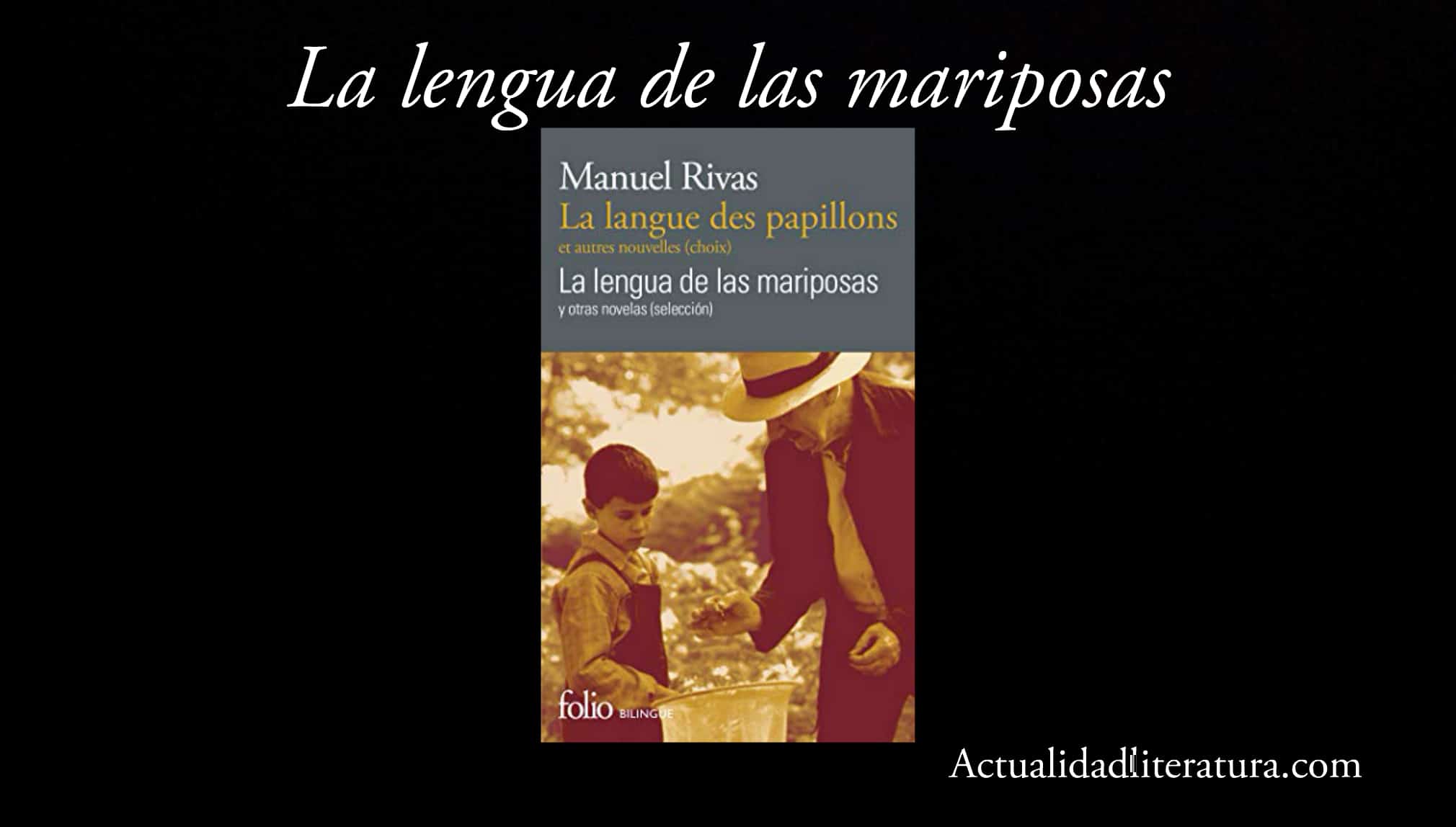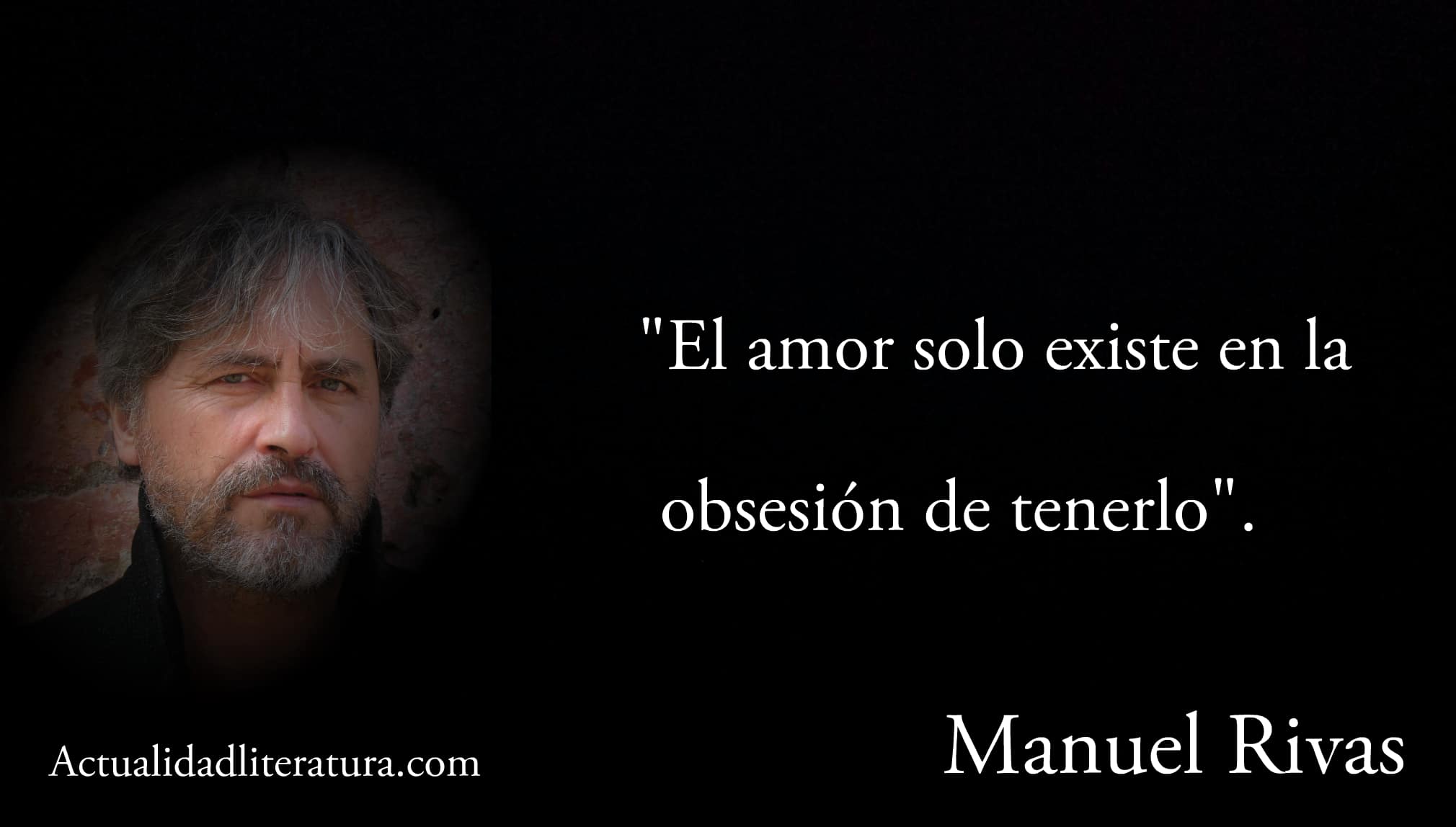
Manuel Rivas.
"The language of butterflies" is one of the 16 stories included in the compilation of stories by the Galician essayist, poet and journalist Manuel Rivas. It was originally written in Galician and translated into Spanish by the author himself. The story is about the friendship of a shy six-year-old boy with his school teacher in a modest town in Galicia in 1936, just before the civil war.
Since its publication in 1995, It was listed as one of the best works written in the Spanish and Galician languages. Some critics even consider it one of the most original pieces of the genre in world literature. Its “prestige” increased even more after the film adaptation directed by José Luis Cuerda, premiered at the San Sebastián Film Festival in 1999.
The author
Manuel Rivas is one of the most important characters in Galician literature. In 2009 he became part of the Royal Galician Academy and in 2011 the University of A Coruña awarded him the Doctor Honoris Causa distinction. Despite being a journalist by profession, he has managed to combine his facet of "news man", with a tireless pen for poetry, essays and stories.
He was born in A Coruña on October 24, 1957. At the age of 15 he was already making a living as a journalist writing for the newspaper The Galician ideal. After finishing high school, he moved to Madrid to study Information Sciences. Soon after he joined Topic, the first weekly published entirely in Galician. Currently, he collaborates with various print media, including the newspaper El País.
Environmentalist
Apart from dedicating himself to writing from different points of approach, Rivas is a prominent environmentalist. In 1981 he participated in an expedition to an Atlantic trench where nuclear waste was dumped. That protest ended with the International Maritime Organization's ban on using ocean floors as a graveyard for atomic waste.
As a result of the “Prestige Disaster” —an oil ship that sank off the coast of Galicia in 2002— prompted the creation of the citizen platform Never again. Also, is a founding partner of Greenpeace, Spain Chapter and his work has been recognized by institutions such as Amnesty International.
That you love me (Name of the work in Galician)

What do you want me, love?
You can buy the book here: What do you want me, love?
What do you want me, love? is a compilation of 16 stories with a common theme: love. It is a feeling approached from different perspectives, with a very wide range capable of including (almost) all the variations covered by the term. It does not even leave out a topic, which —for better or for worse— is equally essential: heartbreak.
Rivas, active in the poetry and the narrative from the end of the 60s, achieved its definitive consecration with this title. His first book was the novel The Carpintero Pencil (1988); winner of multiple awards and taken to the cinema by Antón Reixa. Later, he released another compilation of stories: A million cows (1990), a bold mix of modern lyric with free composition poetry.
"The tongue of butterflies"

The tongue of the butterflies.
You can buy the story here: The language of ...
"The tongue of butterflies" is the second of the stories included in What do you want me, love? The first story gives the publication its name. It is an extremely simple narrative on a structural level. In it, the most childish fantasy of a six-year-old child is complemented in a precise and almost imperceptible way, with an elaborate journalistic report. What's more, no details were left to chance.
Therefore, the work condenses a lot of information in a few pages (10). Despite not delving into descriptions - the author does not have time for it - it is very feasible to locate in rural Galicia in 1936. For this reason, it is possible to breathe all the aromas of nature, feel the textures of the trees, touch the bushes, climb the Sinai "and even see the tongue of the butterflies."
A protagonist to cry with
Identifying with the Sparrow, the child protagonist of the story, is easy. Then, the reader feels firsthand his fear of going to school due to the fear instilled by the father towards the teachers. Well, supposedly, teachers "hit." The narrative is so well done that the viewer can almost perceive the stench of urine when terror makes the child lose control over his sphincter.
And yes, the one who reads, if he immerses himself in the letters properly, is the one who accompanies the little one when — ashamed — he runs away after peeing his pants in front of his classmates. However, later everything calms down thanks to the patience and kindness of Don Gregorio, the teacher with the face of a "toad". The latter is a character who has an enormous capacity to transmit knowledge, a quality that is inversely proportional to its unattractive appearance.
A story that you already know how it will end
Don Gregorio is a Republican, just like the boy's father. Therefore, it is not difficult to guess the consequences if they do not hide their true political ideals when the rebels end the existence of the Second Spanish Republic.

Quote by Manuel Rivas.
The first does not bend. The second, humiliated, ends up defending loudly things in which he does not believe. In his desperation to save himself, he drags his innocent son, who does not understand the facts very well, but feels that everything is wrong. In the end, beauty is swept away by barbarism. Although the protagonists of the story do not know it, the readers do understand that the previous "naivety" will never return.
The film adaptation
With a script that had the collaboration of his own Manuel Rivas, the adaptation by José Luis Cuerda, figuratively, explodes (in the good sense of the term). To the point that This film has been classified as one of the best produced in Latin America in the entire history of the seventh art.
In fact, the film won the award for Best Adapted Screenplay at the XIV edition of the Goya Awards. Those who have not yet had the opportunity to read this story are on time. Why? Well, it only takes about 10 minutes to travel to the Galician grasslands and admire, first-hand, "The language of the butterflies.
It is very interesting to meet the great writers of the Castilian language, you see I was very curious to read their book and see the film.
-Gustavo Woltmann